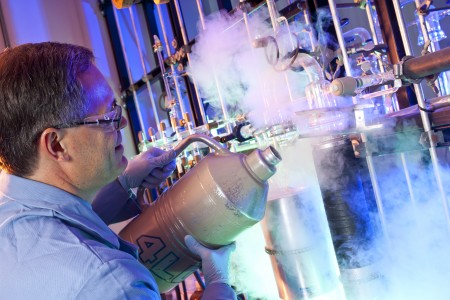UNL chemist Stephen DiMagno was confident his research could revolutionize medical imaging with positron emission tomography, or PET scans. But was it commercially viable?
With help from two National Science Foundation programs designed to guide promising NSF-supported scientific discoveries into the marketplace and assistance from NUtech Ventures, a nonprofit affiliate that helps commercialize UNL research, DiMagno realized the answer was yes.
His new company, Ground Fluor Pharmaceuticals, develops imaging agents for PET scans. PET is a widely used diagnostic tool for detecting and managing certain cancers, heart disease and neurodegenerative disorders including Alzheimer’s and Parkinson’s diseases. This technology might also help companies develop new drugs.
“Our methodology allows us to create more potent imaging agents more rapidly, reliably and in high yield.”
A nuclear medicine imaging technique, PET relies on radiotracers to give information about the function and metabolism in the body’s organs. DiMagno developed a technique to attach the radioactive isotope fluorine-18 to different carrier molecules. The isotope enables a PET scanner to detect a compound’s metabolic fate.
“Our methodology allows us to create more potent imaging agents more rapidly, reliably and in high yield,” DiMagno said. “Previously, these agents were unknown or very difficult to synthesize.”
A $50,000 NSF Innovation Corps award, or I-Corps, enabled DiMagno to meet with more than 100 potential customers, suppliers and distributors to gauge their interest in the technology. These meetings helped DiMagno revise his business plans and identify potential partners.
NUtech Ventures helped him license the technology and introduced DiMagno to Allan Green, a Boston physician, scientist and lawyer who became Ground Fluor’s co-founder and chief executive officer. The company is based in Lincoln, Neb.
A $150,000 NSF Small Business Innovative Research award supports the startup’s activities, including hiring two scientists and expanding its network of academic collaborators. Ground Fluor is testing its method in labs across the country to ensure it can be replicated in a variety of settings.
This technology could increase the availability of existing experimental PET agents and support development of new ones, DiMagno said.
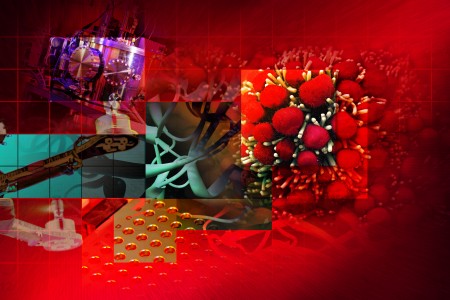

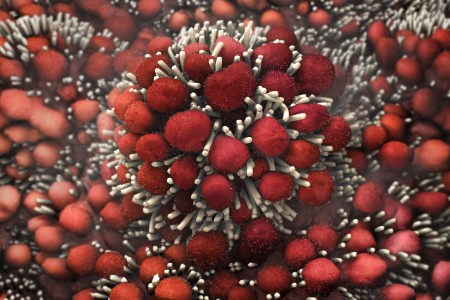

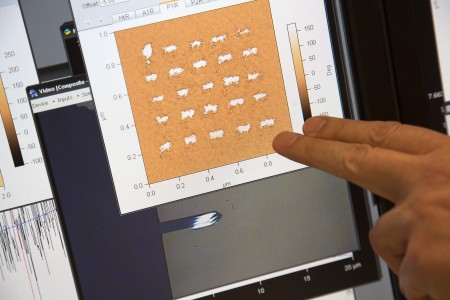





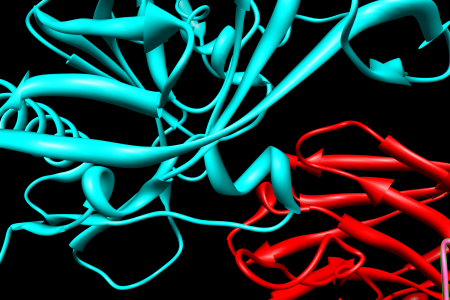
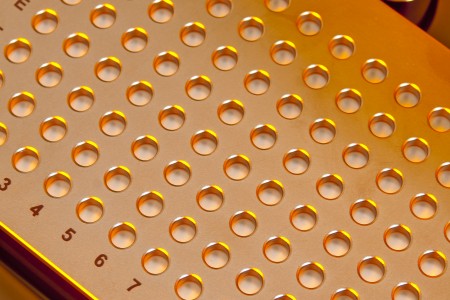

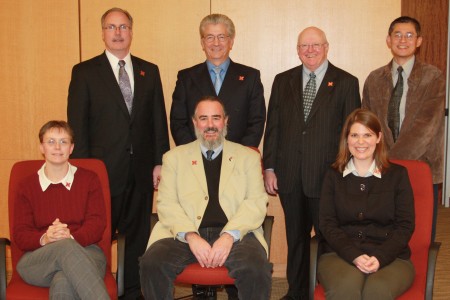











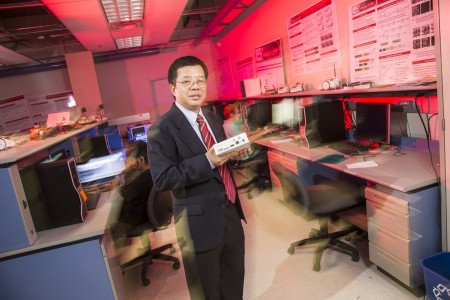



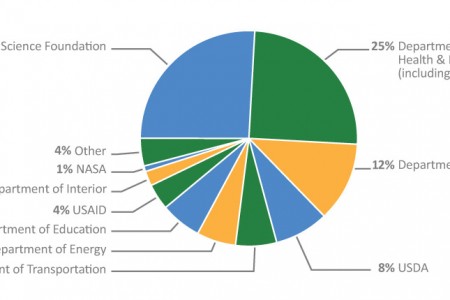

 2011-2012 Research Report
2011-2012 Research Report




